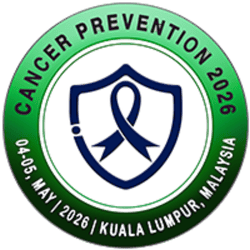Track: Complementary & Emerging Approaches

mplementary and emerging approaches in cancer care focus on integrating innovative therapies and supportive interventions alongside conventional treatments to improve patient outcomes and quality of life. This session highlights advances in preventive oncology, personalized medicine, integrative therapies, and healthcare research that explore novel treatment strategies. By addressing complementary therapies such as nutrition, exercise, mind-body practices, and emerging technologies—including nanomedicine, AI-driven solutions, and targeted therapeutics—the session emphasizes a holistic perspective in cancer prevention- and management. Discussions will foster global cancer initiatives, evidence-based practices, and patient-centered strategies to optimize cancer risk reduction, treatment efficacy, and survivorship care.
Integrative Oncology and Supportive Cancer Care
Integrative oncology combines conventional treatments with supportive approaches such as nutrition, acupuncture, yoga, and psychological care. This sub-topic explores evidence-based strategies that enhance treatment outcomes, improve patient well-being, and strengthen cancer prevention strategies throughout the cancer care continuum.
Nanomedicine and Targeted Drug Delivery Systems
Nanotechnology is revolutionizing cancer therapy by enabling precise delivery of anticancer drugs with fewer side effects. This sub-topic highlights advances in nanomedicine, its role in emerging cancer therapies, and its contribution to innovative oncology research and personalized treatment.
Mind-Body Interventions for Cancer Risk Reduction and Recovery
Mind-body practices, including meditation, mindfulness, and stress management techniques, play a growing role in complementary cancer care. This sub-topic discusses how these approaches support immune health, improve quality of life, and integrate into preventive oncology strategies.
Nutritional Interventions in Cancer Prevention and Management
Proper nutrition is crucial for reducing cancer risk and supporting recovery during treatment. This sub-topic emphasizes dietary modifications, nutritional supplements, and evidence-based healthcare research on the role of diet in cancer prevention, therapy outcomes, and survivorship.
AI-Driven Innovations in Cancer Therapy and Diagnostics
Artificial intelligence is transforming oncology by improving cancer screening, diagnostics, and treatment planning. This sub-topic examines how AI-powered tools support early detection, personalize therapies, and enhance healthcare research to deliver innovative and patient-centered cancer care.
Complementary Pain Management and Palliative Care Approaches
Effective pain and symptom management are vital for improving cancer patients quality of life. This sub-topic highlights complementary therapies—such as herbal remedies, massage therapy, and integrative pain-relief strategies—used alongside standard treatments in palliative care and survivorship programs.
Scientific Highlights
- Public Health & Cancer Awareness
- Cancer Prevention
- Screening & Early Detection
- Vaccination & Immunoprevention
- Environmental & Occupational Factors
- Complementary & Emerging Approaches
- Genetic & Personalized Prevention
- Cancer Biology and Genetics
- Cancer Immunology
- Molecular Oncology
- Hematology in Cancer
- Cancer Diagnosis and Therapeutic Approaches
- Oncology Research and Innovations
- Advanced Methods in Cancer Research
- Cancer Epidemiology and Prevention
- Future Trends in Prevention & Research
- Pediatric Oncology


